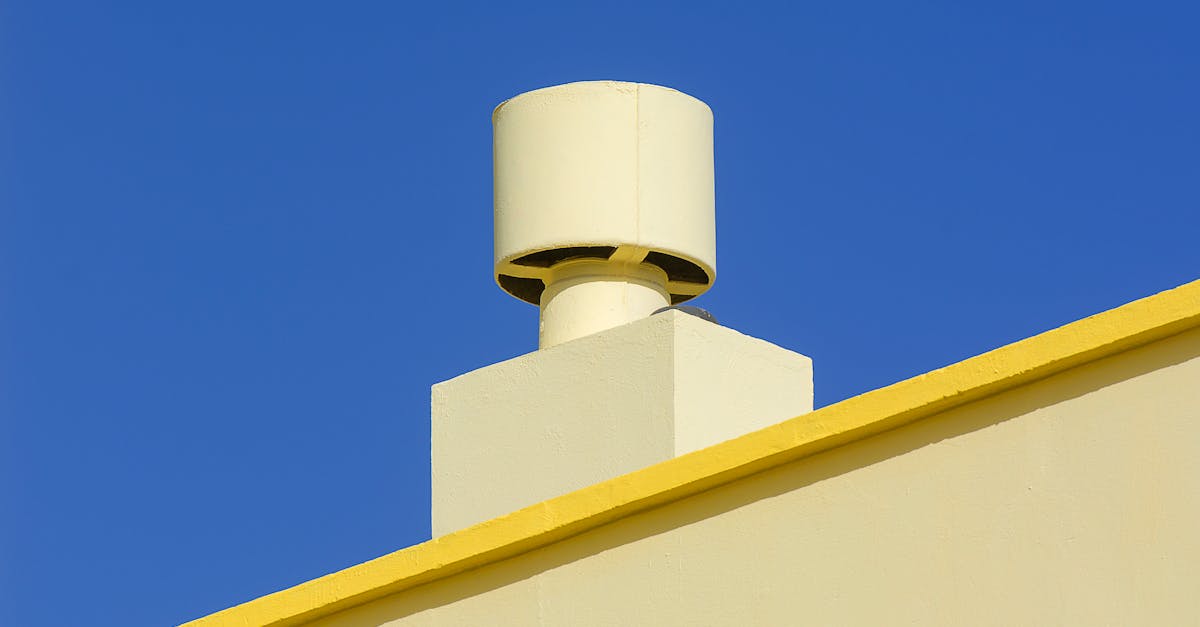
How Often Should You Clean Your Blower Motor?
Regular maintenance can significantly enhance the performance of your HVAC system. Blower Motor Cleaning should be a part of your routine upkeep. Ideally, schedule a cleaning at least once a year. However, if you live in an area with high dust levels or have pets, consider increasing the frequency to every six months. These conditions can cause increased buildup, compromising the efficiency of your system.
Monitoring the overall condition of your blower motor is also essential. If you notice reduced airflow or unusual noises, it may indicate a need for more frequent cleaning. Proactively addressing these issues through timely Blower Motor Cleaning can help prevent more extensive problems and promote a longer lifespan for your HVAC system.
Recommended Cleaning Frequency
Regular maintenance is essential to keep your HVAC system running efficiently. For most systems, blower motor cleaning is recommended every one to three years. Factors such as usage frequency, climate, and environmental conditions can influence this schedule. Homes in dusty areas may require more frequent cleaning to maintain optimal performance.
Pay attention to any changes in air quality or system performance as these may signal the need for a cleaning. If you notice unusual noises or reduced airflow, it might be time to check your blower motor regardless of the calendar schedule. Staying proactive ensures longevity and efficiency in your HVAC system.
Common Mistakes to Avoid When Cleaning
Blower Motor Cleaning requires careful attention to detail to avoid damaging components. One common mistake is using excessive force when removing dust and debris. This can lead to breaking delicate parts or dislodging connections that are crucial for proper function. It's essential to approach the task gently and use the right tools to prevent unnecessary harm. Ignoring manufacturer guidelines is another error that can result in improper cleaning techniques, which may hinder performance or cause issues in the long run.
Another mistake involves neglecting to disconnect power before beginning the cleaning process. Working on a powered blower motor can pose serious safety risks, including the potential for electrocution. Ensuring that all power sources are safely disconnected not only protects the technician but also safeguards the blower motor itself. Additionally, failing to clean the surrounding areas can allow dust and debris to accumulate again quickly, undermining the benefits of Blower Motor Cleaning. Regular monitoring of the environment in which the blower motor operates can further enhance its efficiency and lifespan.
Ensuring Proper Procedures
When undertaking Blower Motor Cleaning, it’s crucial to follow the manufacturer’s guidelines to ensure effective results. Starting with the right tools can make a significant difference. Use a vacuum cleaner equipped with a brush attachment to remove loose dirt and debris from the motor assembly. A soft cloth or a toothbrush is useful for reaching any stubborn grime lodged in tight areas. Always prioritize safety by disconnecting the power supply before beginning the cleaning process, which can prevent accidents during maintenance.
Additionally, checking components such as wiring and connections during cleaning can help identify any potential issues. Avoid using excessive water or harsh chemicals, as these can damage sensitive parts of the motor. Instead, opt for specialized cleaning agents if necessary. Taking the time to inspect while cleaning can lead to better performance and longevity for your blower motor, ultimately enhancing its efficiency.
Benefits of Regular Maintenance
Regular maintenance of your blower motor is essential for optimal performance and longevity. By prioritizing blower motor cleaning, you can prevent the buildup of dust and debris that can hinder airflow. This not only improves efficiency but also reduces energy consumption, resulting in lower utility bills. When a blower motor operates smoothly, it relies less on its energy resources and can extend the lifespan of the HVAC system as a whole.
Moreover, a clean blower motor contributes to better indoor air quality. Dust and allergens can accumulate within the system, circulating throughout your living space. Scheduled blower motor cleaning ensures that these particles are minimized, providing a healthier environment for occupants. Regular maintenance also helps to identify any potential issues before they escalate into costly repairs, further emphasizing the importance of keeping your system well-maintained.
Longterm Advantages of a Clean Blower Motor
Regular blower motor cleaning can significantly enhance the efficiency of your heating and cooling systems. A clean blower motor operates more smoothly, reducing energy consumption and leading to lower utility bills. When dirt and debris accumulate, the motor has to work harder to maintain airflow, which can strain components and shorten their lifespan. By investing time in blower motor cleaning, you can help prevent costly repairs or premature replacements.
Another long-term advantage of maintaining a clean blower motor is improved indoor air quality. Dust and allergens can circulate throughout your home if the blower motor is not properly cleaned. Over time, this can contribute to respiratory issues and other health problems for you and your family. Ensuring regular maintenance through blower motor cleaning can create a healthier living environment while optimizing system performance.
FAQS
What is a blower motor, and why is it important?
A blower motor is an electric motor that powers the fan responsible for circulating air throughout your home's heating and cooling systems. It is crucial for maintaining a comfortable indoor temperature and ensuring efficient airflow.
How often should I clean my blower motor?
It is generally recommended to clean your blower motor at least once a year. However, if you have pets, live in a dusty area, or use your HVAC system frequently, you might consider cleaning it more often.
What are common mistakes to avoid when cleaning a blower motor?
Common mistakes include not turning off the power before cleaning, using excessive water or cleaning solutions, and neglecting to check for any loose or damaged components during the process.
What are the benefits of regularly maintaining my blower motor?
Regular maintenance of your blower motor can lead to improved air quality, enhanced efficiency, reduced energy costs, and a longer lifespan for your HVAC system.
Can I clean my blower motor myself, or should I hire a professional?
While you can clean your blower motor yourself if you are comfortable with basic DIY tasks, hiring a professional is advisable for a thorough cleaning and inspection to ensure everything is functioning correctly.
